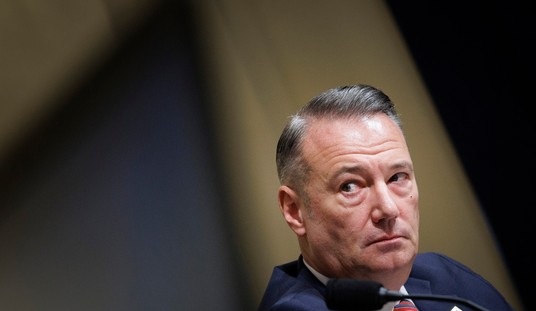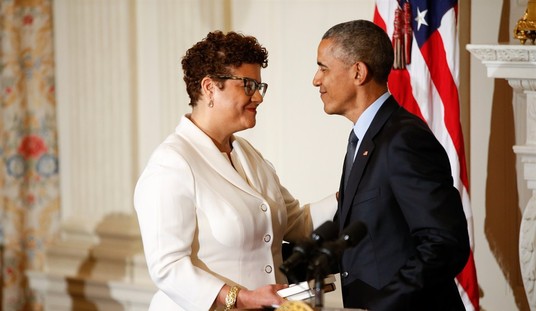The author of this opinion piece is a British writer who wrote a book about raising boys. The thrust of her argument is that it's not enough to get away from "toxic masculinity" which she associated with traditional, right-leaning people. She argues we should probably also get away from the "positive masculinity" that some on the left are promoting as an alternative.
“Positive masculinity” has been around for a while. Most likely coined in early 2000s by psychologists as a way of working with male patients in therapy, the term has now become the go-to framework for the wider progressive discussion about boys and men. It has also inspired a spate of programs and initiatives aimed at enticing boys to embrace more feminine-coded virtues such as emotional vulnerability and nurturing. Masculinity has had an unfairly bad rap, its proponents argue, becoming permanently shackled to the word “toxic.” Positive masculinity is an attempt to rebrand and reinstate it for the next generation, often with the claim that unlike the insecure posturing of the shirt-ripping strongmen, this is in fact “real” manhood...
After the cartoon supervillainy of Donald Trump and the smarmy misogyny of JD Vance, the “positive masculinity” of Walz and his ilk is a joyful relief, and these programs are often doing good work. But when it comes to truly shifting cultural norms for the next generation of boys and allowing them to embrace their full humanity without shame, we might do better to ditch the masculinity rhetoric altogether. Because rather than challenging the old stereotypes and patterns, the whole positive masculinity framework actually seems to be reinforcing them.
Why should reinforcing the idea that masculinity exists be a problem? Do we need to abandon masculinity completely? Apparently we do because, according to the author, it puts too much pressure on boys who feel pressure to live up to it.
As research for my book “Boymom,” I interviewed boys from many situations and backgrounds, and this fear showed up keenly. Masculinity didn’t seem to be so much a source of pride for them as a nagging cause of anxiety. The boys told me either explicitly or implicitly about how the pressure to meet some unattainable standard for manliness weighed on them, forcing them into a kind of posturing rigidity and creating a constant background level of fear...
None of this is to say, of course, that there are not many positive qualities associated with masculinity. Strength, bravery, heroism, physical toughness and even emotional stoicism in the right contexts can all be wonderful qualities, even lifesaving ones (though of course they are not exclusive to men). But the idea that boys must use masculinity as a constant reference point for their own value is restrictive and harmful to them and others. What the boys I interviewed needed was not a new model for masculinity but for the important adults in their lives to grant them freedom from that paradigm altogether.
My own take is that this kind of article is just a slightly different strain of the usual progressive meddling in things with seemingly little appreciation for why they are the way they are in the first place. Eliminating masculinity is a fine idea for a science fiction novel but not a realistic idea for a human world where masculinity has existed for tens of thousands of years and will continue to exist no matter what progressives do to undermine it in our lifetimes.
The simple fact is that some things come down to biological differences. Men are, in general, more likely to be physically stronger, faster and aggressive from a young age until they are too old to be any of those things. That difference is biologically determined by our development from the womb onward and those differences clearly had social implications when humans lived as hunter gatherers for much of our history.
There's also an obvious sexual connection to these natural tendencies. Most men are attracted to the differences in women's physiques and vice versa for women. The things which make us attractive to one another include outward signs of health and vitality. In the case of males that probably means a certain amount of muscle or cunning which, in the past, might have marked a particular man as a good provider/protector and also someone who would have the respect of other men.
Of course it's true that the modern world isn't dependent on those old categories anymore. It doesn't take much brawn to drive to the supermarket or even to buy a gun to protect your family. But there are still lots of places in the world where masculinity matters. It is still largely men who serve as soldiers, mechanics, construction workers, police, etc.
And our brains haven't developed as quickly as our cultures. There is still a social cost to abandoning the traditional aspects of masculinity. The idea that adults can simply grant boys the freedom to ignore masculinity is pretty foolish. It's not the parents who will be lining up to date or marry that child. In fact, it's a safe bet that the parents based their own decisions on the same kind of natural instincts about what makes an attractive mate as most people do. Like it or not, masculinity is going to remain part of the social world for most boys so long as there are girls around.
Does that mean that every boy needs to have Arnold Schwarzenegger's physique or be trained to fight in the Octagon? Obviously not. But abandoning masculinity completely would do a lot more harm than good for boys. And somewhat surprisingly, even the NY Times readers seem to get it.
I get everyone should be free to be who they want to be (I agree actually), but some men are going to want to be traditionally manly-men (just as some women are going to want to be traditionally feminine women). If you tell them it's bad, well, they'll go to someone who tells them it isn't, and if it isn't Richard Reeves or Tim Walz it'll be Jordan Petersen, and if it isn't Jordan Petersen it'll be Andrew Tate...
A personal note--I actually got a lot of this stuff back in my teenage years (this would be back in the 90s) and rejected masculinity. I wound up having to relearn bits and pieces of it over a decade later when I wanted to date women. While it may not be typical here, the desire of (heterosexual) women for traditionally 'masculine' men is a large driving factor nobody wants to talk about.
From a reader in the midwest.
No one likes strength until someone else tries to use theirs against the ones you love. Like it or not, humanity’s dark side demands that we need the strong folk of the world - cops, armies, enforcers. And let’s absolutely work to remove the problematic side of strength while we have them.
One more:
Mindsets like this are the problem. Not the solution.
It is natural for most men and boys to want to be masculine. By telling them that they should not be masculine, but rather human, that implies that men are not human. It also causes them to fight their natural instincts, which is confusing and often leads to anger and violence.
Boys should be encouraged to be themselves, not a feminized version of themselves. If they don't feel masculine, so be it. But if they do, allow them to thrive. Don't stifle them.
Interestingly, the author of this opinion piece was much less dogmatic in a recent interview with Reason than she is here. In that interview she argued that boys were getting hit from the right and the left with views of masculinity that were equally harmful. Her opinions seem to have shifted rather dramatically in a few months.








Join the conversation as a VIP Member